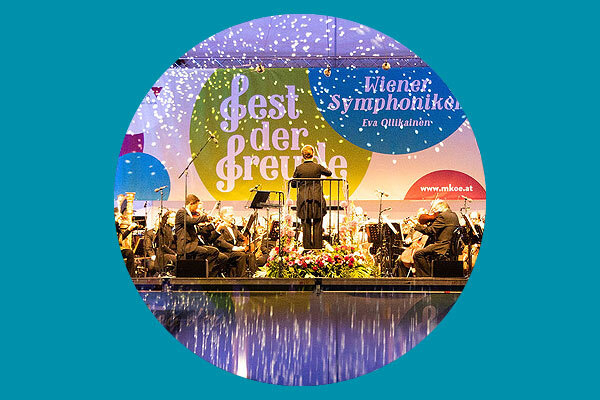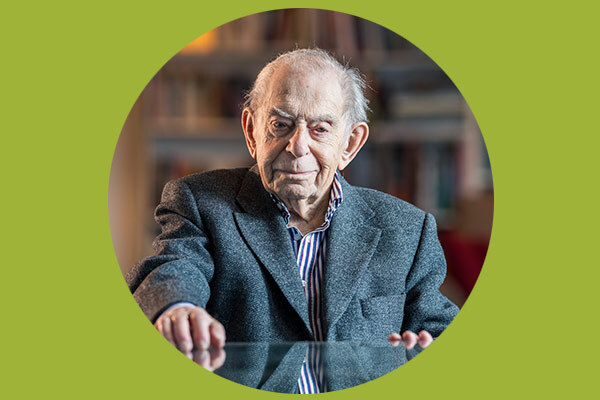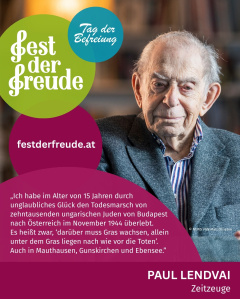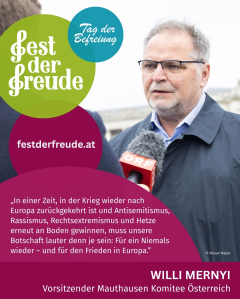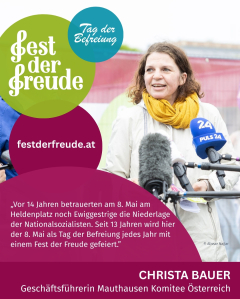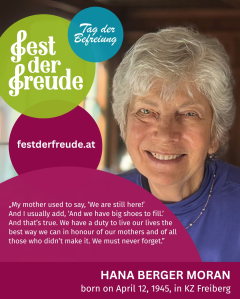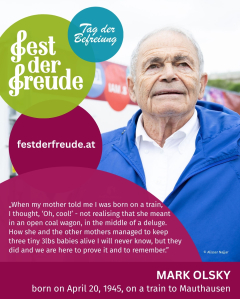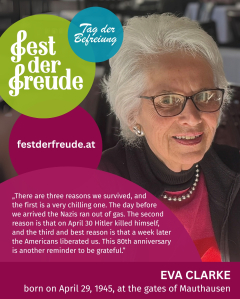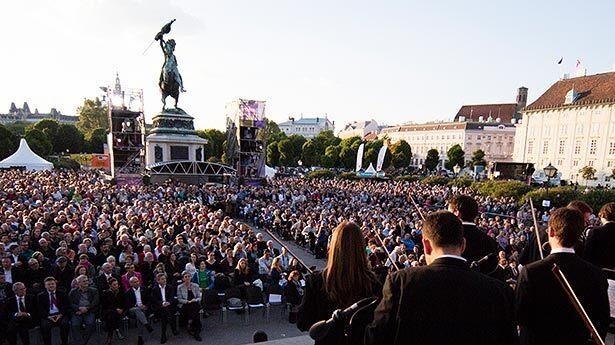The highlight of the Festival of Joy 2025 was the speech by contemporary witness Paul Lendvai. We are delighted and honoured that Paul Lendvai, an influential and analytical voice in the area of European contemporary history, spoke at the Festival of Joy in this important memorial year.
Paul Lendvai was born in Budapest on 24 August 1929. As the son of Jewish parents, he survived persecution by the National Socialists in Hungary and the death march to Austria in 1944 at the age of 15 with the help of a Swiss Schutzpass (safety pass). The traumatic experiences of his youth and the political change he experienced had a lasting impact on him.
After the war, Paul Lendvai studied law and worked as a journalist in Hungary. In 1953, Paul Lendvai was arrested for being ‘politically unreliable’ and was banned from working as a journalist for three years. After the Hungarian Uprising, he fled Hungary in 1957 and travelled to Vienna via Prague and Warsaw.
He began his journalistic career in Austria as the Eastern European correspondent for the daily Die Presse. In 1959, Paul Lendvai received Austrian citizenship.
From 1960 to 1982, Paul Lendvai was a foreign correspondent for the London newspaper the Financial Times. From 1982 onwards, he was the editor-in-chief at the Eastern Europe department of the ORF public broadcasting company and later director-general of Radio Österreich International. From March 1980 to 2024, Paul Lendvai hosted the discussion programme Europastudio on ORF. In 1973, Paul Lendvai founded the quarterly Europäische Rundschau as the voice of East-West relations and remained its editor-in-chief until it ceased publication in 2020. Paul Lendvai has also written numerous books about Austria, Hungary and Eastern Europe. He was awarded the Bruno Kreisky Prize for Political Books in 1994 for his book Between hope and disillusionment – reflections on the changes in Eastern Europe. He recently published the study Über die Heuchelei (About the Hypocrisy).
Paul Lendvai has received many awards, including the Austrian State Prize for Cultural Journalism. Today, he continues to contribute to public discourse in his role as a political commentator (at Der Standard).
